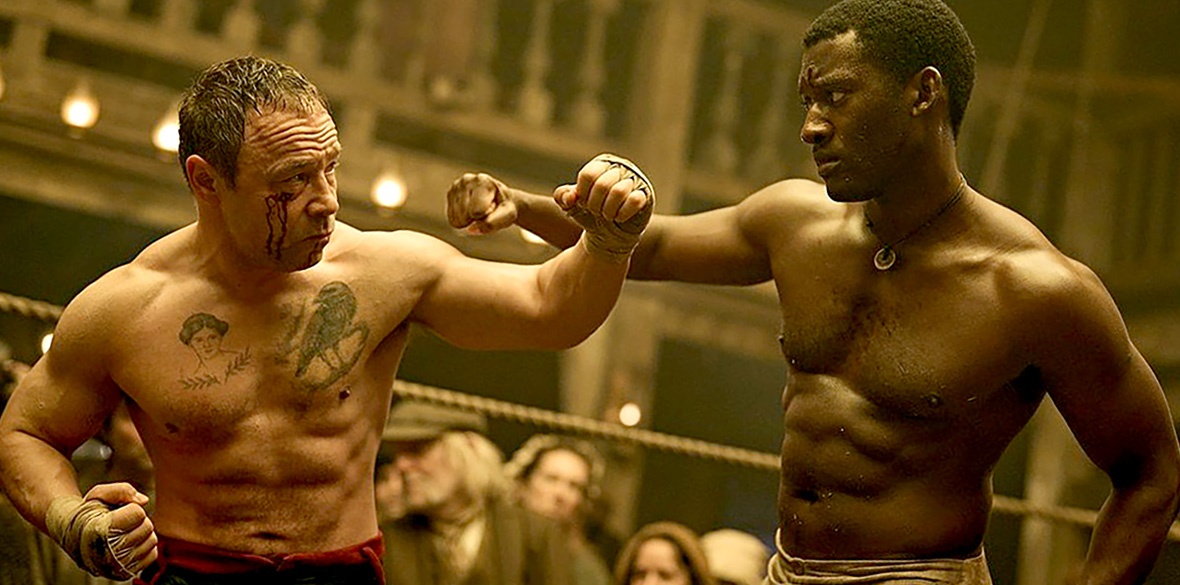This is the last article you can read this month
You can read more article this month
You can read more articles this month
Sorry your limit is up for this month
Reset on:
Please help support the Morning Star by subscribing here
AS Trump and Musk unleash a new kind of barbarism and open class war on US workers based around the cuts to domestic spending and the renewal of the tax giveaway to the billionaires, it is especially worthwhile to revisit and acknowledge the work of Stephen Knight who through a series of series has charted the brutality of the British ruling class in the 19th and 20th centuries.
Knight’s most famous, though not necessarily his most trenchant, series is Peaky Blinders.
The Peakys are a family gang in Birmingham in the 1920s whose mixed heritage of outsiders — Irish and Roma — forced them to claw their way up the ladder to a final hard-won respectability. The two brothers, the lead characters, were both damaged in the World War I trenches and the series was the first to deal specifically not only with the effects on the home front of that war, but also to locate those effects as necessary results of the barbarity of that war, where the European ruling classes ordered their workers to the trenches to kill each other and a whole generation of poets and artists on both sides were either murdered or mentally destroyed in that onslaught.
Just as, in the present, European leaders are threatening to send this generation of their own youth to die on the killing fields of Ukraine.
Knight’s other works though, charting 19th-century exploitation, are equally compelling. They encompass the crudity of the ultimate capitalist Ebenezer Scrooge in his particularly harsh version of Dickens’s A Christmas Carol; the damage to the colonies and to those who perpetrated this cruelty in Tom Hardy’s East India Company slaver returned to the homeland in Taboo; and the destruction of intimate relationships in the wake of a social climber again in Dickens’s Great Expectations.
Knight’s emphasis on the sordid is not for the sake of it — just to rub it in the audience’s face, as are some American “realist” productions — but rather brutally and individually to describe the horrors of this naked class system, which in the present is tearing off its liberal veil.
Knight’s latest outing may be his most truculent. A Thousand Blows recounts a partially true story of a Jamaican boxer, Hezekiah Moskow, and his relationship with Mary Carr, the “queen” of a gang of all-female thieves in London’s working-class melting pot, the East End, in the 1880s. The “savagery” of the East End is constantly contrasted to the “civilised” West End, where the profits of 19th-century British mercantile and factory capitalism, wage slavery at home and actual slavery abroad, have accrued.
Hezekiah befriends a Chinese store owner, Mr Lao, based partly on his knowledge of Chinese from his mother’s side in Jamaica. As the story unfolds though we learn that both families were victims of repression. Hezekiah watches his father be mown down by British redcoats in a peaceful uprising and Mr Lao later reveals he has lost his family to Qing dynasty violence, as representatives from both oppressor countries meet in London.
Lurking in the shadows is an anarchist, the lover of one of the women in Mary’s gang, but he is given short shrift and quickly escorted off the scene, with Mary explaining that unlike him, she is “an honest criminal.” Knight is not here disparaging revolution, but rather trying to point to how difficult real change is in such a rigidly and racially structured class society where the working class has its own means and customs for survival but also becomes at times an inverse of the ruling class as Mary is “Queen” of her gang, the Forty Elephants.
The series is also a boxing series and as such is the most class-conscious boxing narrative since John Garfield’s ’40s noir Body and Soul.
In the ring the Jamaican Hezekiah is faster and more agile than his Anglo opponents, a la Muhammed Ali, but also when he must summon the strength to beat a skilled opponent, driven by his anger at his treatment by this system. He is initially called to London to be a “lion tamer” but he then discovers that instead he is to be the African lion in an overtly racist menagerie.
In detailing a black man’s rise through the ring, and the actual and enduring antagonism that surrounds that rise, Knight is providing an alternative to woke fairy tales like Bridgerton, where, without a struggle, Africans magically share power in a corporate equity version of 19th-century Britain. Knight is more interested in hard-won and actual equality than fake corporate quackery.
Mary and Hezekiah’s path is fraught with danger everywhere they turn, not only from the class above them but also from the resentment of their own peers as they refuse to accept their place. The series is also good at exposing sham diplomacy as the highest level meeting of Chinese and British royalty ends with Mary and her thieves discovering that the monarchy are greater scam artists than they could ever hope to be.
Such is a series full of contradictions with the only reservation being that of too much anticipation in the final episodes of a second season, which thankfully has already been commissioned as a continuing part of Knight’s exposure of the debilitating effects of a capitalism whose coarser side only reveals the brutality that underlies its “sophisticated” veneer.
A Thousand Blows is available now on Disney+
Dennis Broe and Toby Miller have a new podcast called Culture and Barbarism







